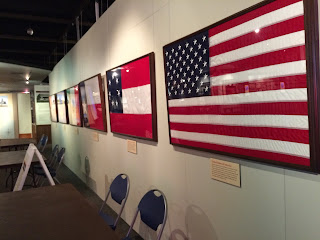The visit at the Institute of Texan Cultures was really revealing, in a way, that allowed us Fulbrighter's to perceive Texas in its original light. The Lone Star State's history is characterized by diversity and manifoldness. Six different nations have flown flags over Texas, and those six Flags of Texas stand as a symbol of the diversity that gave rise to the Lone Star State we know today.
The history of different people living in Texas nowadays and hundred of years before confirms this diversity. The semi-nomadic Apache for example, who controlled most of the southern plains, had a very interesting image of life. Unlike other Indians, the Apaches did not have warrior societies. Leadership was a matter of charisma and past success without political organization. The basic social unit was the extended family, which was organized into bands (bands you could simply join or change, if unhappy with leadership). So all in all, the structure of society was very free and somehow individualistic, without being isolated.
Religion for the Indians of the plains was never separated from daily life. The plants, animals, earth and all other elements of nature had "souls" and could never be owned; if damaged, appropriate ritual must be take place to make everything right again. This way of thinking, I guess, is something we really miss today without even realizing. In a world where owning as much as possible is the ne plus ultra, this idea of "souls" can help us to feel free in our state of mind. Free, because we can focus on the essence of life. This idea, quite similar to Minimalism, is one of the mesmerizing things that I could draw lessons from today.


Great description of indigenous values, Enes. I love the pics.
AntwortenLöschen